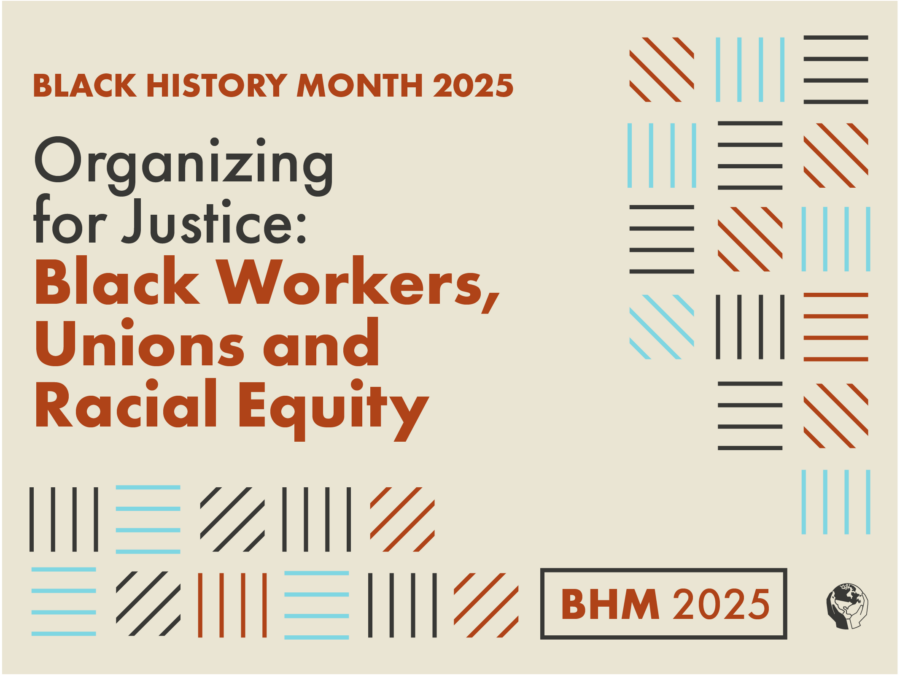
BHM 2025: Join Canada’s unions in advancing racial and economic justice for Black workers
Canada’s unions are marking Black History Month by highlighting the crucial role unions play in advancing racial and economic justice for Black workers. On February 18, we will be hosting Black labour leaders in a virtual conversation about what Black workers are up against, and how unions can make an important difference.
Recent data shows that Black workers are the most likely racialized group to be covered by a union contract, with unionization boosting their annual income by more than $3,000. Unionized Black workers benefit from better wages overall, increased job security, and protections against discrimination.
However, systemic barriers in employment persist, creating harmful impacts that ripple across generations of Black workers. Despite higher rates of unionization and the resulting benefits, Black workers still deal with significant barriers at work: the report also shows that Black workers face the second-largest racialized wage gap due to their disproportionate representation in lower-wage sectors and limited access to or exclusion from work in higher-wage sectors.
Black workers in Canada experience ongoing labour market discrimination and systemic racism—severe obstacles which impact their access to fair employment, advancement, and equitable treatment at work. The effects of anti-Black racism are far-reaching, causing enduring barriers to economic advancement and empowerment for Black communities.
A 2023 Black Canadian National Survey conducted by York University’s Institute for Social Research, in partnership with the Canadian Race Relations Foundation, showed that 75% of those polled experienced racism in the workplace as a serious or very serious problem, and that Black workers see workplaces as epicentres of racial discrimination and unfairness.
This is unacceptable, and unions have a pivotal role to play in addressing and redressing these systemic injustices—both in workplaces, and in broader society.
“The labour movement must continue to uphold our core mission to fight for equity, fairness, and dignity for all workers. This means actively working to dismantle anti-Black racism and discrimination in workplaces and unions, bargaining for equitable opportunities, educating members and leaders, amplifying the voices and leadership of Black workers, and engaging with Black workers to organize for better jobs and pay,” said Larry Rousseau, Executive Vice-President of the CLC. Unions can be a powerful force for racial and economic justice for Black workers, whether at work, in the union or in society. Don’t forget to register for our webinar on February 18, and be sure to check out our new factsheet on Black workers and unionization. You can also get involved with us this Black History Month and beyond by texting BHM to 55255 (message & data rates may apply).





